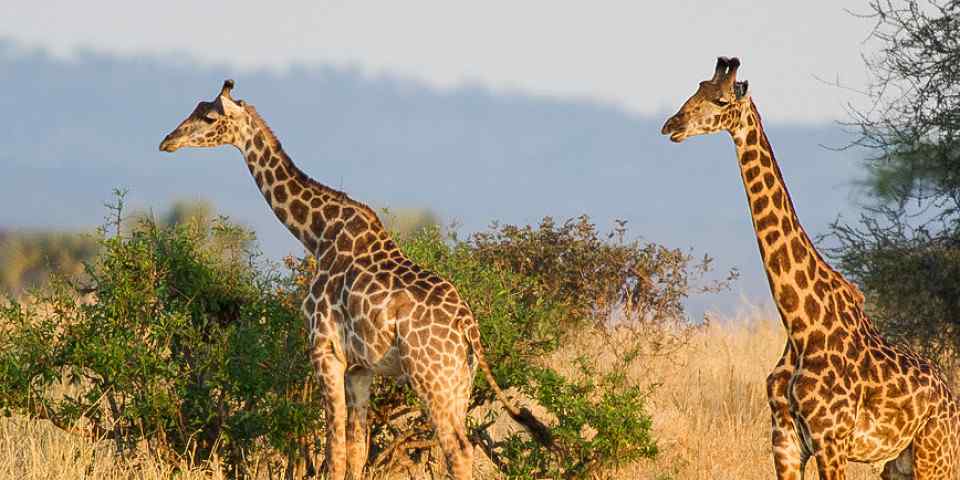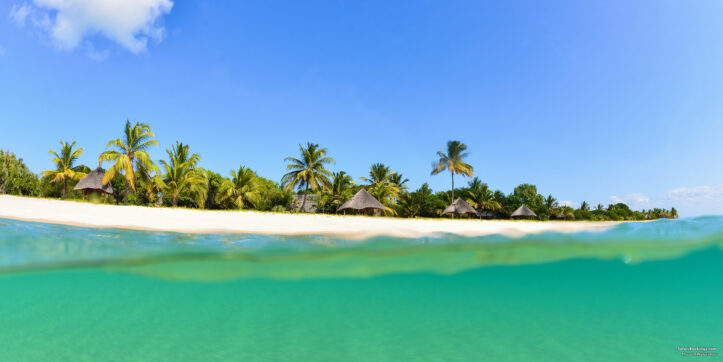
Top 10 Best Things To Do in Mozambique
 By Ariadne van Zandbergen
By Ariadne van Zandbergen Ariadne is an Africa expert. She and her husband form a team who author the Bradt guidebook to Mozambique.
Mozambique’s 2,500km/1,553mi of palm-fringed beaches and its remote islands with first-class luxury lodges are the main draws for visitors. But, while this is the perfect country for a relaxing holiday with plenty of sun and sea, there are a lot more things to do in Mozambique.
Wondering what to do in Mozambique? There are countless places of interest in this beautiful country. Aside from several popular tourist attractions, there are many off-the-beaten-track destinations too. To get you started, below are some of the best places to visit and things to do in Mozambique.
1. Dancing the Night Away in Maputo
 Concert
Concert
Mozambique’s capital city, Maputo, is known for its vibrant nightlife. Whether you just want to have a few beers at a waterfront bar, watch live music, or dance the night away at one of Maputo’s many vibey nightclubs, there is always plenty going on in this city that never sleeps.
2. Diving and Snorkeling in Bazaruto NP
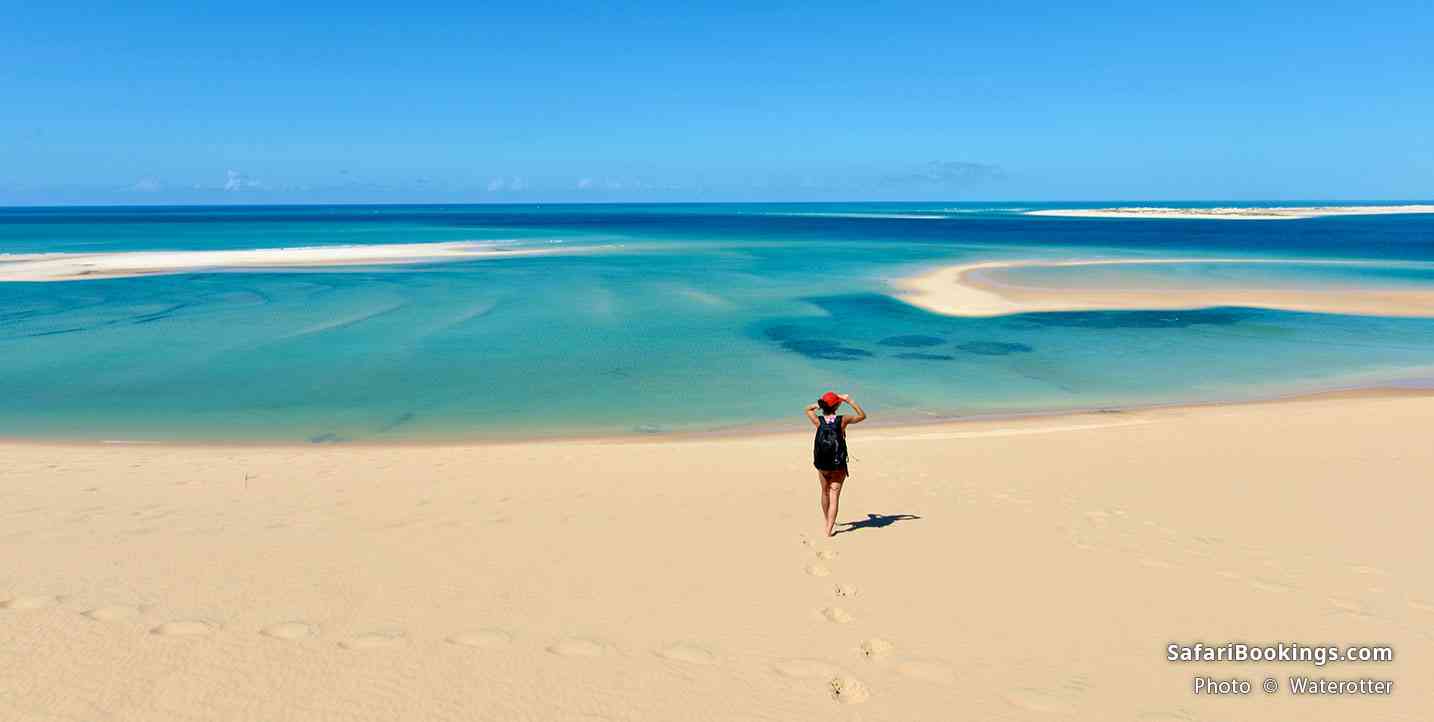 Tourist walking on an isolated beach
Tourist walking on an isolated beach
With its idyllic, palm-lined, white sandy beaches, Bazaruto Archipelago is the perfect Indian Ocean island retreat. A handful of stylish exclusive resorts are spread out over several islands. The peaceful surroundings are perfect for relaxation and beach walks, but there is plenty of opportunity to explore as well. Climb up the crest of one of the tall dunes for endless vistas over the coastline and inland fresh-water lakes. Wildlife includes samango monkey, crocodile, the diminutive suni antelope and three types of marine turtle. The main attractions of the islands lie offshore though. One of the top snorkeling spots, ‘The Aquarium’ is home to a dazzling array of corals and reef fish. Diving is even more exciting, with manta rays and whale sharks regularly spotted.
3. Dhow Trip in the Quirimbas Archipelago
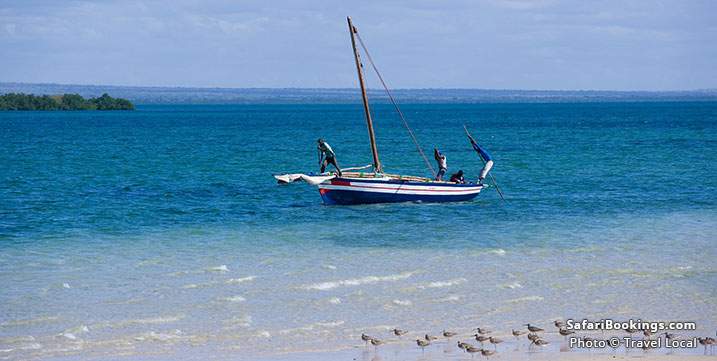 Dhow. Source: flickr.com/photos/travellocal/48264179637
Dhow. Source: flickr.com/photos/travellocal/48264179637
The Quirimbas Archipelago consists of 32 islands strung out over 250km/155mi off the north coast of Mozambique. The lushly vegetated islands with their unspoiled beaches are breeding sites for several turtle species including the massive leatherback. You’re most likely to see the turtles in the water; diving and snorkeling are out of this world here. There are plenty of other activities available, but there is no better way to end the day than to head out on a sunset dhow cruise. You’ll get taken back in time as the finely crafted Swahili vessels have been sailing these waters for centuries.
4. Looking for Lions in Gorongosa NP
 African lion in Gorongosa National Park. Source: flickr.com/photos/52450054@N04/40221006773
African lion in Gorongosa National Park. Source: flickr.com/photos/52450054@N04/40221006773
Gorongosa National Park is Mozambique’s most alluring safari destination. This vast wilderness area at the southern end of the Great Rift Valley is a biodiversity hot spot. Elephant, buffalo, zebra and a variety of antelope such as impala, nyala, waterbuck and the sought-after sable are all present. Lions are making a comeback and wild dogs have been reintroduced too.
5. Joining an Ocean Safari in Tofo
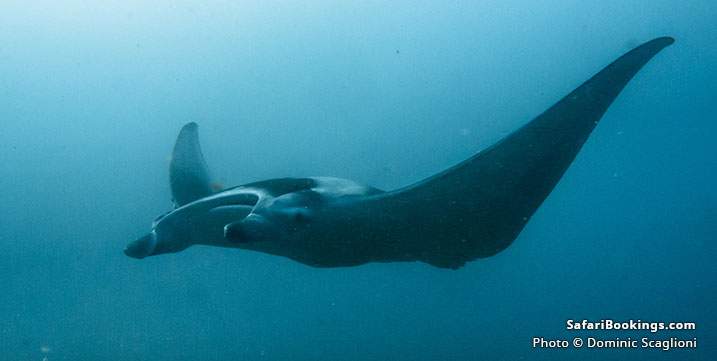 Giant manta ray. Source: flickr.com/photos/dominic-scaglioni/8735100671
Giant manta ray. Source: flickr.com/photos/dominic-scaglioni/8735100671
Although it’s only a small village, Tofo is one of the more popular tourist hubs in Mozambique. What makes it attractive to many visitors is its lived-in feel; locals and travelers mingle in the market and a nice assortment of low-key eateries, guesthouses and shops line the sandy streets. While it’s easy to just hang out in Tofo, there is plenty to do here. Highly recommended are the ocean safaris, where you go out to sea looking for marine wildlife such as manta rays, dolphins, turtles and whale sharks. The latter are giants, typically reaching up to 12m/39ft long, but are totally harmless. You’ll be equipped with snorkels and when given the green light, you can jump out and swim alongside them.
6. Seeing Colonial Relics on Mozambique Island
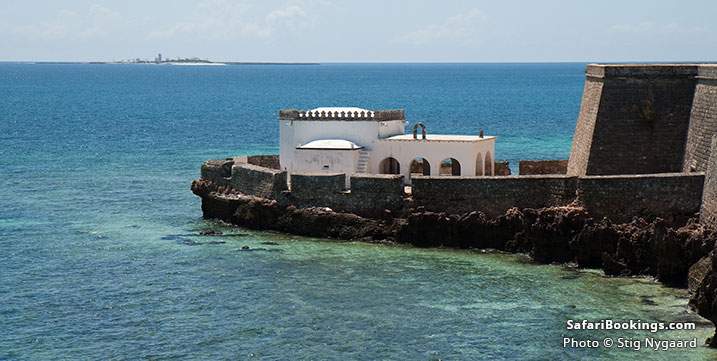 Chapel of Nossa Senhora de Baluarte. Source: flickr.com/photos/stignygaard/2735315217
Chapel of Nossa Senhora de Baluarte. Source: flickr.com/photos/stignygaard/2735315217
A sleepy backwater today, Mozambique Island (also known as Ilha de Moçambique) was the capital of Portuguese East Africa for almost four centuries prior to 1898. The whole town is a Unesco World Heritage Site and it houses some of the oldest buildings in the southern hemisphere, most notably the 16th-century Fort of Saint Sebastian and a trio of old churches, one of which dates back to 1562. Despite its rich heritage, Mozambique Island is remarkably untouristed and you don’t have to be a history buff to appreciate its distinctly time-warped character.
7. Snorkeling in Lago Niassa
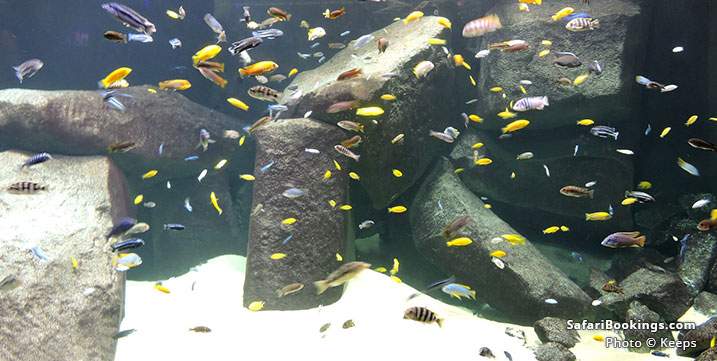 Lago Niassa. Source: flickr.com/photos/isg-online/50210454351
Lago Niassa. Source: flickr.com/photos/isg-online/50210454351
Lago Niassa, the third largest lake in Africa, is home to a staggering 850 fish species. This is more than all the freshwater species in North America and Europe combined. Although little visited in Mozambique, Lake Malawi as it is known across the border, offers fantastic snorkeling opportunities. Several small ecofriendly lodges make the journey to this remote corner of Mozambique especially worthwhile.
8. Enjoying Beach and Bush in Maputo NP
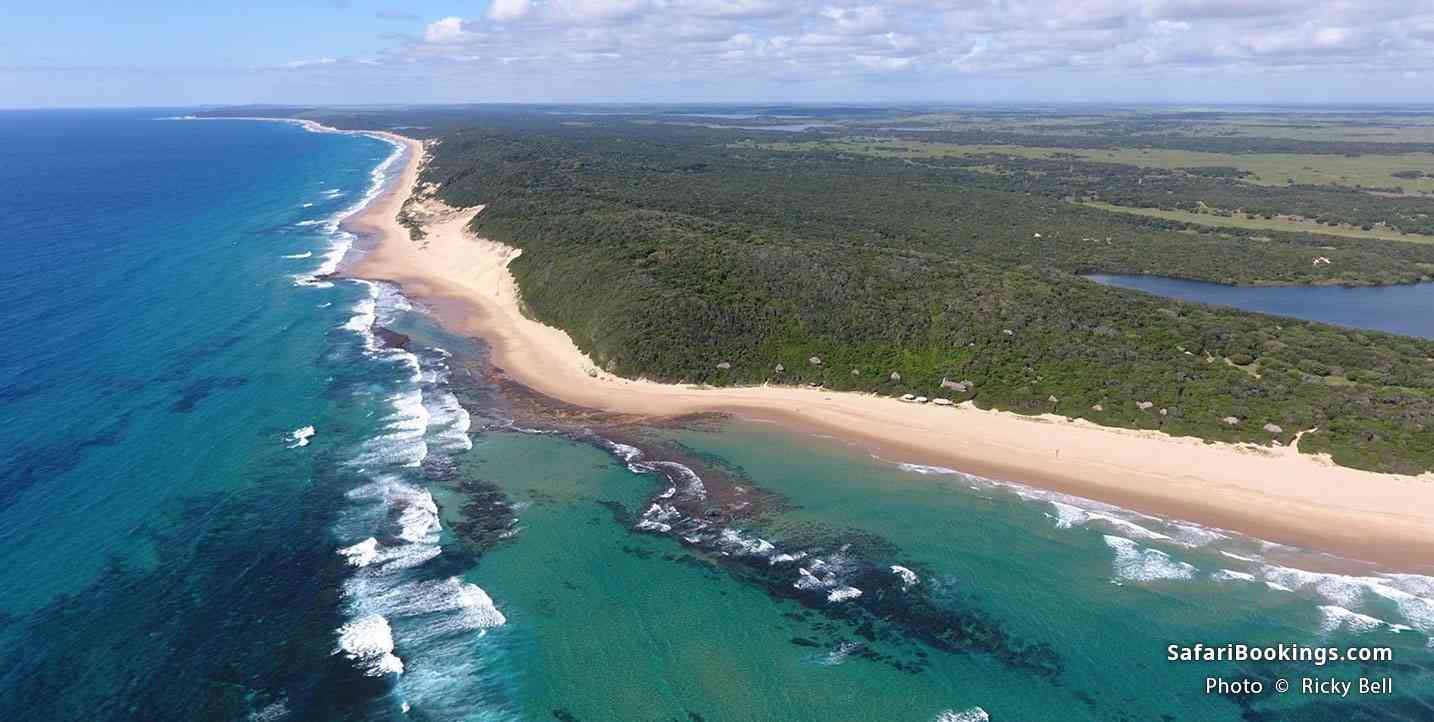 Aerial view of the beach and bush
Aerial view of the beach and bush
This coastal reserve was established in 1960 to protect a population of several hundred elephants resident in the far south of Mozambique. Now that many other animals have been reintroduced, Maputo National Park offers an almost unique bush and beach experience. Where else can you go on a game drive looking for elephants in the morning and on an ocean safari spotting whales and other marine giants in the evening?
9. Eating Famous LM Prawns and Other Seafood
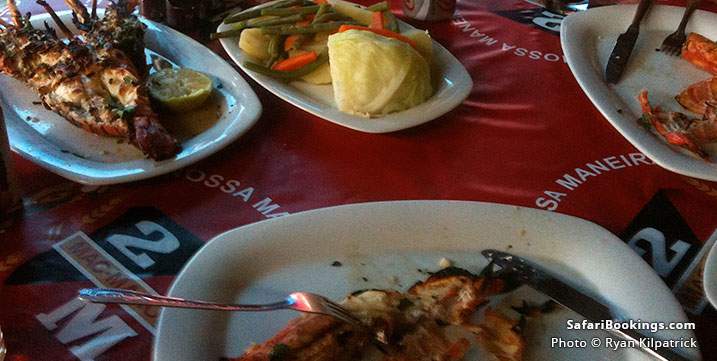 Fish market lunch. Source: flickr.com/photos/rkilpatrick21/7156469817
Fish market lunch. Source: flickr.com/photos/rkilpatrick21/7156469817
Who doesn’t enjoy trying the local cuisine when traveling? If you love seafood, you’re in for a treat in Mozambique. Wherever you go, you can enjoy freshly grilled fish, lobster, crab and octopus, but what really stands out are the prawns. These are famously known as LM prawns in reference to Lourenco Marques, the colonial-era name for the capital city Maputo. The best way to enjoy them is with a hot peri-peri sauce, a local concoction made with chilies, lemon and garlic.
10. Seeing Rock Art at Chinhamapere Hill
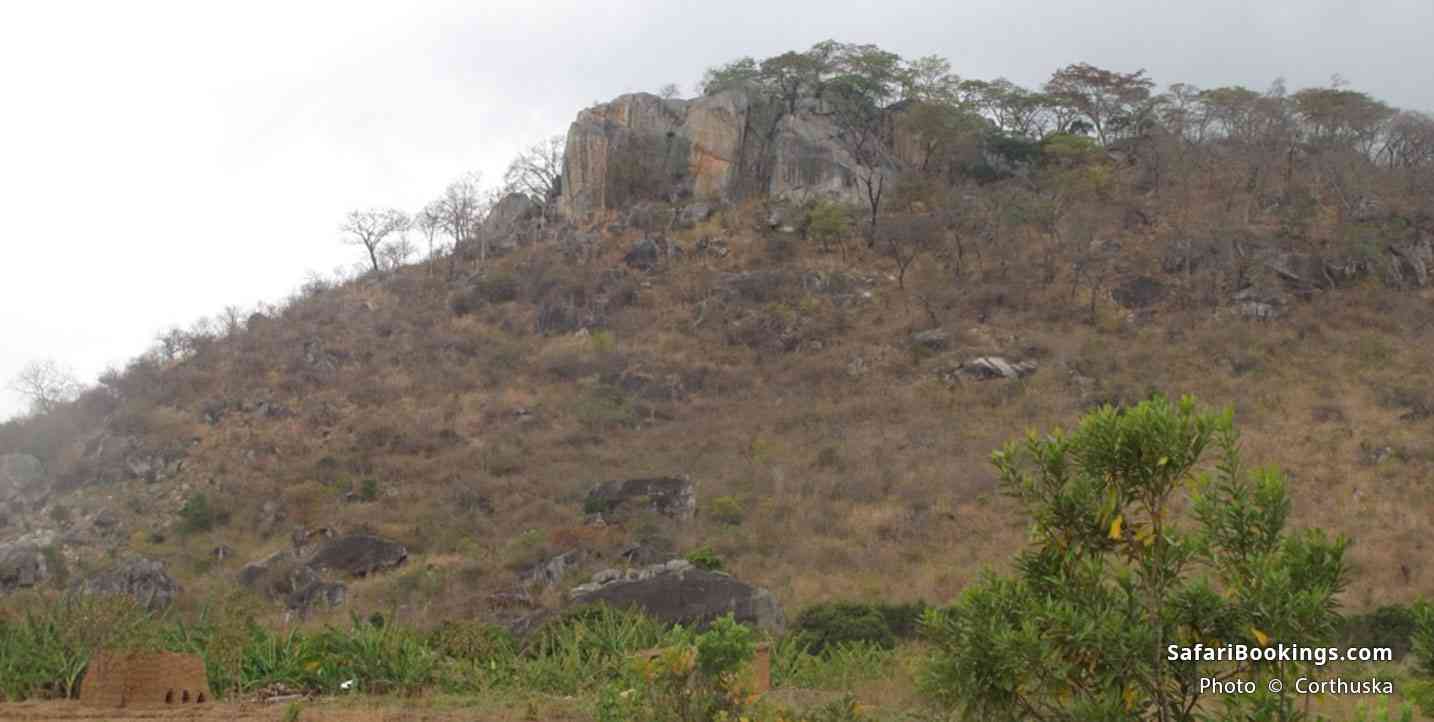 Chinhamapere Hill in Mozambique. Source: flickr.com/photos/31258916@N07/6246909738
Chinhamapere Hill in Mozambique. Source: flickr.com/photos/31258916@N07/6246909738
Chinhamapere Hill, Mozambique’s most sacred rock-art site, is little known by outsiders. Visiting the ancient paintings is refreshingly low-key. You probably won’t see any other travelers when you arrive. Ask around and somebody will show you the way. There is no fee, but a donation is always welcome.
Want To Visit Mozambique?
Click on the button below to compare Mozambique packages offered by top-rated tour operators.
 By Ariadne van Zandbergen
By Ariadne van Zandbergen Ariadne is an Africa expert. She and her husband form a team who author the Bradt guidebook to Mozambique.
More About This AuthorAfrican Safari Tours
-
![5-Day Safari Experience with Comfortable Accommodations]()
5-Day Safari Experience with Comfortable Accommodations
$1,430 pp (USD)
Tanzania: Shared tour (max 6 people per vehicle)
Mid-range Lodge & Tented CampYou Visit: Arusha (Start), Lake Manyara NP, Tarangire NP, Serengeti NP, Central Serengeti NP, Ngorongoro Crater, Arusha (End)

Mercy Africa Serengeti Adventures
4.9/5 – 15 Reviews
-
![7-Day Tanzania Group Safari Wilderness Escape]()
7-Day Tanzania Group Safari Wilderness Escape
$1,144 pp (USD)
Tanzania: Shared tour (max 6 people per vehicle)BudgetCamping & Lodge
You Visit: Arusha (Start), Tarangire NP, Serengeti NP, Ngorongoro Crater, Lake Manyara NP, Materuni Waterfalls (Highlight), Arusha (End)

GoldFinch Expeditions
5.0/5 – 13 Reviews
-
![5-Day Serengeti, Ngorongoro and Tarangire Safari]()
5-Day Serengeti, Ngorongoro and Tarangire Safari
$1,436 to $1,529 pp (USD)
Tanzania: Private tourBudgetLodge & Tented Camp
You Visit: Arusha (Start), Tarangire NP, Central Serengeti NP, Ngorongoro Crater, Arusha (End)

Ozon Light Tours
5.0/5 – 193 Reviews




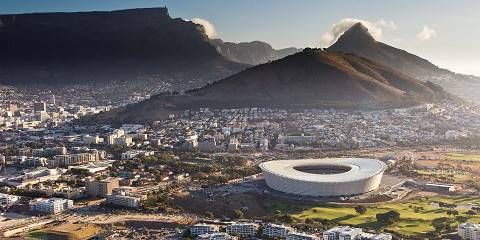




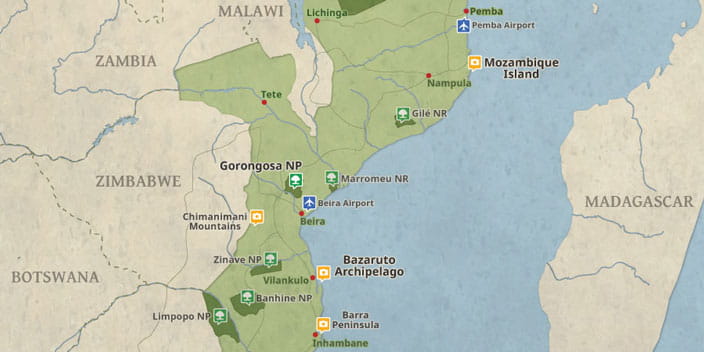
 Subscribe to our newsletter
Subscribe to our newsletter
 Follow us on Instagram
Follow us on Instagram




